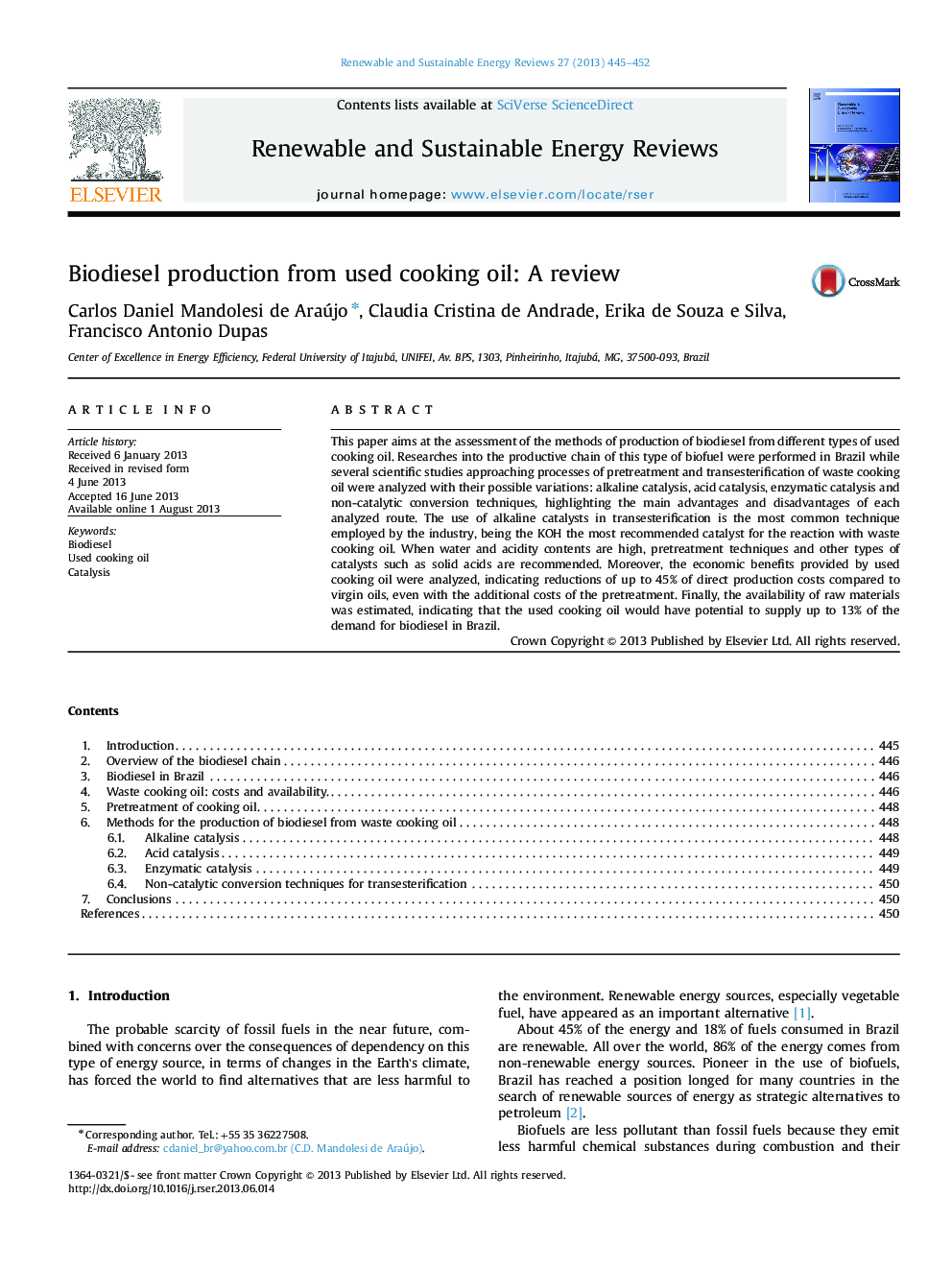| Article ID | Journal | Published Year | Pages | File Type |
|---|---|---|---|---|
| 8121388 | Renewable and Sustainable Energy Reviews | 2013 | 8 Pages |
Abstract
This paper aims at the assessment of the methods of production of biodiesel from different types of used cooking oil. Researches into the productive chain of this type of biofuel were performed in Brazil while several scientific studies approaching processes of pretreatment and transesterification of waste cooking oil were analyzed with their possible variations: alkaline catalysis, acid catalysis, enzymatic catalysis and non-catalytic conversion techniques, highlighting the main advantages and disadvantages of each analyzed route. The use of alkaline catalysts in transesterification is the most common technique employed by the industry, being the KOH the most recommended catalyst for the reaction with waste cooking oil. When water and acidity contents are high, pretreatment techniques and other types of catalysts such as solid acids are recommended. Moreover, the economic benefits provided by used cooking oil were analyzed, indicating reductions of up to 45% of direct production costs compared to virgin oils, even with the additional costs of the pretreatment. Finally, the availability of raw materials was estimated, indicating that the used cooking oil would have potential to supply up to 13% of the demand for biodiesel in Brazil.
Keywords
Related Topics
Physical Sciences and Engineering
Energy
Renewable Energy, Sustainability and the Environment
Authors
Carlos Daniel Mandolesi de Araújo, Claudia Cristina de Andrade, Erika de Souza e Silva, Francisco Antonio Dupas,
